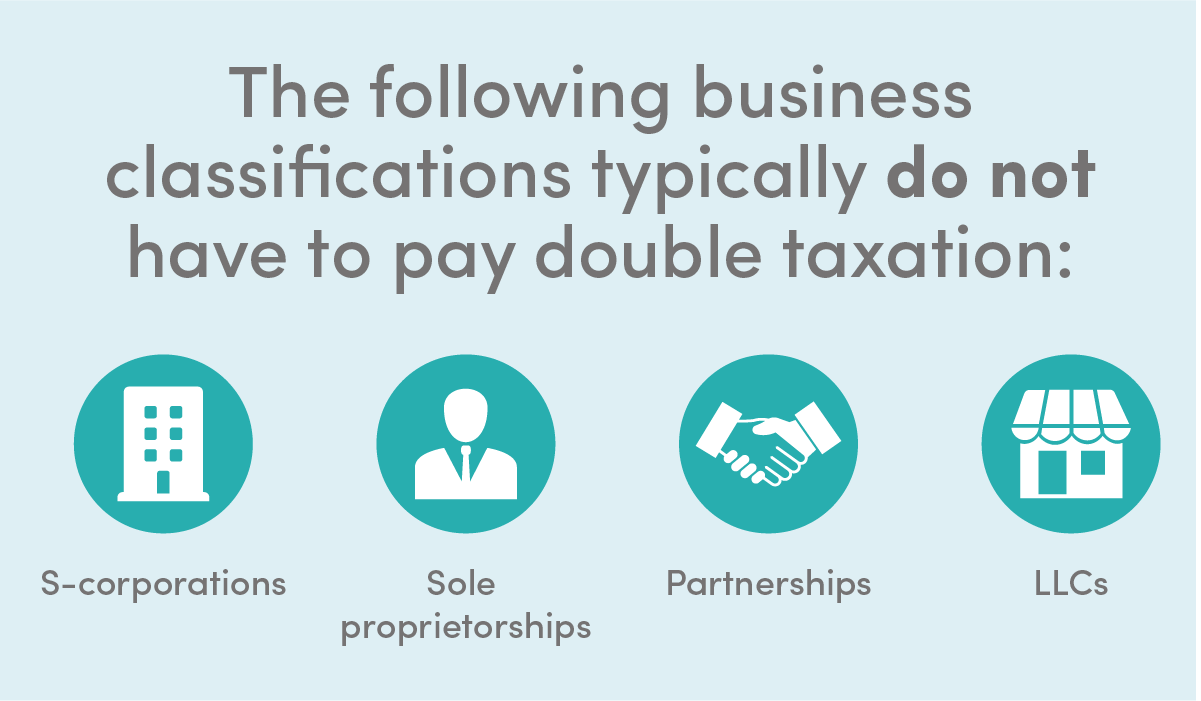Written by: Jacob Dayan
As the name implies, double taxation involves paying taxes twice on a single source of income. The double taxation principle most commonly occurs in international business due to multiple countries assessing tax on the same item. Double taxation can be levied on income as income tax, assets as capital tax, or transactions as sales tax. Double taxation is a common target for tax code critics, most likely due to the unintended nature of its origin.
Double taxation arose out of competing for tax legislations and tax jurisdictions, likely due to early efforts to decentralize the post-independence federal government and the United States’ rapid growth.

Domestic double taxation occurs commonly when business profits are taxed at both the business and personal levels. Corporations must pay income tax at the predetermined corporate rate before profits are disbursed to shareholders. Then, each shareholder will pay a dividend tax on these profits according to their income tax rates. The double taxation of dividends is one of the most common cases of domestic double taxation. Other common examples include the estate tax — where tax is paid on an income and the transfer of that income via inheritance — and 401(k) loans.
S-corporations and smaller businesses are not always subject to double taxation in the way larger corporations are. S-corporations differ in this regard as they can pass profits directly to shareholders without paying dividends in the interim. For small businesses, shareholders are typically also employees. They can avoid the dividend tax by receiving their portion of the earnings as wages.
To show the double taxation principle in action, let’s take a hypothetical corporation, X Industries. This year, X Industries achieved a profit of $10,000,000. Of this profit, it retains $6,000,000 in earnings, which are disbursed to shareholders. One shareholder, Mr. Johnson, received $200,000 in dividends. The $10,000,000 profit is taxed at the 2020 corporate tax rate of 21%. After this, Mr. Johnson must still pay income tax on his $200,000 dividend income according to his tax rate.
The businesses that deal with double taxation the most are C-corporations and international companies. As previously mentioned, S-corporations and small businesses can avoid double taxation, the former being due to its classification and the latter due to earnings being paid out as wages.

Much like S-corporations, sole proprietorships, partnerships, and LLCs get to avoid double taxation due to classification. Sole proprietorships and single-person LLCs file their business taxes on Schedule C; the income is then accounted for on the owner’s personal annual tax return.
In principle, when a corporation earns income in a nation other than their home country, they will have to pay taxes twice: earnings taxes in the nation where it made the income and income taxes in its home nation.
There are several exceptions to this rule. For instance, to encourage trade between specific nations, national governments may enter trade agreements with preferred partners to reduce or eliminate double taxation entirely. Some visible trade agreements or trade treaties are the OECD (Organisation for Economic Co- operation and Development) — which contains 37 nations — and NAFTA (North American Free Trade Agreement), which was replaced by the USMCA (United States-Mexico-Canada Agreement) in 2020.
Larger corporations can often not avoid double taxation through straightforward means, but small and medium- sized businesses can. As previously mentioned, business classification matters. Small businesses classified as S-corporations, sole proprietorships, partnerships, and LLCs are exempt from double taxation. These classifications are known as “Pass Through Entities” because they avoid or “pass-through” the double taxation snags that large businesses cannot avoid.

If you cannot achieve the “pass-through entity” designation for any reason, there are still options. For example, to avoid paying double taxes on dividend disbursal, you can add them to shareholders’ existing salaries.
Salaries are considered deductible for corporations, so this may lead to more savings come tax time.
Some corporations find creative ways to game the system. For example, a corporation owner may set up an independent LLC that purchases assets from the corporation and leases them back. The LLC is exempt from double taxation due to its classification, and the corporation can use this situation to create deductions.
However, this can be risky and may not stand up to IRS scrutiny should an audit be incurred.
The most effective, least risky way to avoid double taxation is hiring an expert team of accountants and bookkeepers, such as the finance professionals at FinancePal. FinancePal’s team is well-versed in small business tax preparation, freelance taxes, sales tax consulting services, finding tax savings, and more, with expertise across industries. Experienced accountants can help your business find ways to circumvent double taxation while still maintaining IRS compliance and best accounting practices. This is especially important when it comes to withstanding IRS scrutiny in the form of audits. Failed audits can critically damage the financials of any unprepared business.
It is easy to think of accounting and bookkeeping as necessary evils to keep the IRS off your back. But an experienced financial team can provide essential business insights, find tax and payroll savings, and allow business owners to spend less time stressing the financials and more time running the business. Get a custom quote for FinancePal’s professional financial services today.

Jacob Dayan is a true Chicagoan, born and raised in the Windy City. After starting his career as a financial analyst in New York City, Jacob returned to Chicago and co-founded FinancePal in 2015. He graduated Magna Cum Laude from Mitchell Hamline School of Law, and is a licensed attorney in Illinois.
Jacob has crafted articles covering a variety of tax and finance topics, including resolution strategy, financial planning, and more. He has been featured in an array of publications, including Accounting Web, Yahoo, and Business2Community.

Nick Charveron is a licensed tax practitioner, Co-Founder & Partner of Community Tax, LLC. His Enrolled Agent designation is the highest tax credential offered by the U.S Department of Treasury, providing unrestricted practice rights before the IRS.
Read More
Jason Gabbard is a lawyer and the founder of JUSTLAW.

Andrew is an experienced CPA and has extensive executive leadership experience.
Discussed options for my business with Brian and he was very helpful in suggesting how best to handleRead more “Bozeman Grooming”
Contact us today to learn more about your free trial!
By entering your phone number and clicking the "Get Custom Quote" button, you provide your electronic signature and consent for FinancePal to contact you with information and offers at the phone number provided using an automated system, pre-recorded messages, and/or text messages. Consent is not required as a condition of purchase. Message and data rates may apply.
By entering your phone number and clicking the “Get Started” button, you provide your electronic signature and consent for FinancePal to contact you with information and offers at the phone number provided using an automated system, pre-recorded messages, and/or text messages. Consent is not required as a condition of purchase. Message and data rates may apply.
